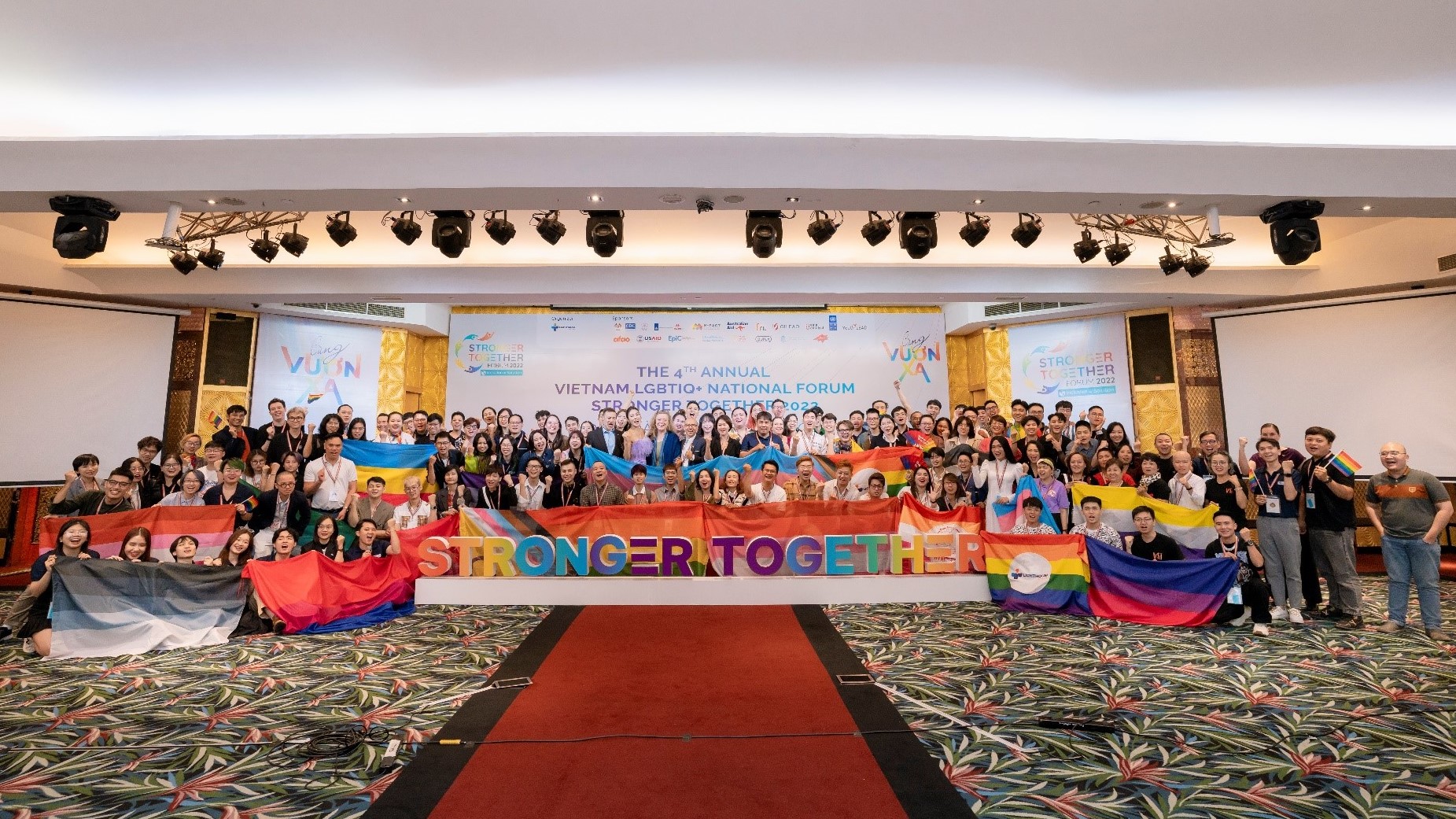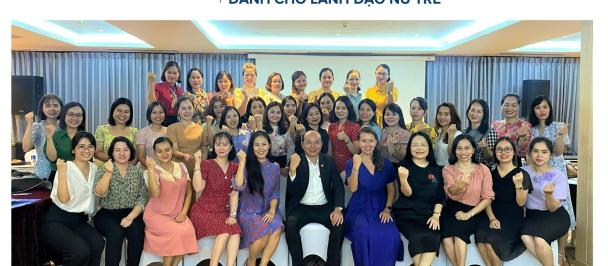by Patrick Haverman, UNDP Deputy Resident Representative, with contribution from Atty-Roos IJsendijk.
Inclusion = Solution: Data-Driven Advancement of LGBTIQ+ Rights with UNDP’s Inclusion Index
November 23, 2022

Viet Nam LGBTIQ National Summit: Stronger Together 2022
This week in Ha Noi UNDP supported the Stronger Together Summit: Inclusion = Solution event, where community members, representatives and organizations connected, shared experiences and learned from each other. Like during the September 2022 Ha Noi Pride Week, the main message remains that every individual has the right to live their life freely, the right to love, to marry and to be protected against discrimination and violence. Such is enshrined in the dignity of all persons by virtue of their shared humanity as well as various human rights standards and instruments. Celebrating the 70th anniversary of the Universal Declaration of Human Rights, UN Secretary General Antonio Guterres condemned violence and discrimination of LGBTIQ+ persons and communities “simply for who they are or whom they love”. This year’s Inclusion = Solution theme emphasized the need for strong allies for the LGBTIQ+ community to change the hurdles they face in daily life due to stigmatization.
“Change will only be created on the basis of solidarity and consensus,” said Kim Duyen, runner-up Miss Universe 2021 and previous Ambassador of the National LGBTIQ+ Conference. “It starts with each individual, loving yourself, staying positive and empowering community to speak up and act together.” Indeed, for LGBTIQ+ policy progress it is crucial to place people at the center, from listening to individual voices to collective action. All forms of community representation are equally important to drive change and to ensure that nothing about us without us is a reality for vulnerable groups in particular.
In addition, we, at UNDP, propose another essential component to improve regulatory effectiveness: data driven and evidence-based policy-making processes. To that end, UNDP in Viet Nam is proud to facilitate the pilot programme called the LGBTIQ+ Inclusion Index. Various local LGBTIQ+ partner organizations were supported this year to undertake an evaluation of law, policy and written reports from research institutes, Government and NGOs to assess the level of inclusivity of LGBTIQ+ persons and communities in Vietnamese society, the educational system, civic spaces and politics, labour market and economy, health care, and general safety in the public and private spheres.
This first phase showed us that there are a lot of data gaps in all sectors that were considered. And thus, more reporting and data collection would be necessary to get a more comprehensive overview of the Vietnamese context. Nevertheless, some preliminary conclusions on the legal framework could be drawn. For instance, it is very positive that same-sex relations are decriminalized, that there are no restrictions on LGBTIQ+ expression, and that just a few months ago, the Minister of Health issued a clear directive to all public health care practitioners regarding the non-discrimination of LGBTIQ+ patients. At the same time, same-sex unions such as marriage or registered partnerships are not legalized, there is no specific protection against violence or discrimination on the basis of sexual orientation or gender identity in the public, private or professional spheres, and terminology like “complete biological sex” in the context of (proposed) policy on intersex or transgender persons signals a problematic mis-conceptualization of gender identity and gender as a non-binary spectrum.
In 2015, the National Assembly amended the Civil Code to open the door to legal gender marker change for transgender persons to affirm their lived gender identity. The draft Gender Affirmation Law – the first ever law on transgender in Viet Nam – is being developed by the Ministry of Health and the Ministry of Justice. In 2016, during its term as member of the United Nations Human Rights Council (2014-2016), the Government of Viet Nam also voted in favour of a resolution on protection against violence and discrimination on the basis of sexual orientation and gender identity. Translating that protection into the domestic legal framework would be a timely step forward considering that Viet Nam was recently elected to the HRC for the 2023-2025 term. In May 2022, UNDP contributed to the legislative development by facilitating an important international policy dialogue on LGBTIQ+ rights, during which also the US Special Rapporteur on LGBTIQ+ presented for the audience of Government agencies and community representatives.
The equity of LGBTIQ+ persons and communities in all aspects of life will become a reality in Viet Nam. That is as much a bottom up as a top-down effort. Community organizations are hard at work to improve their lived realities, which was exemplified at the Stronger Together Summit when local and international organizations shared their experiences, priorities and coordinated on the LGBTIQ+ Inclusion Index topics such as health, sustainable development, education and awareness. UNDP, iSEE, Lighthouse and other organizations initiated the Index but a next phase that includes primary data collection and analysis is warranted.
At the same time, standards set at the top trickle down to laws and policies that impact the rights and health of community members. The pilot phase did show a clear need for overarching LGBTIQ+ equality (legal) standards. Therefore, it would be a huge step forward when general equality provisions in the Constitution and national legislation would be amended to include sexual orientation and gender identity as prohibited grounds for discrimination. UNDP, as part of the UN family and a proud partner of the Ha Noi Pride Week and this week’s Stronger Together Summit, stands ready to support the Government of Viet Nam as well as communities on the ground to advance the rights and wellbeing of LGBTIQ+ persons and their families in policy and in practice.

 Locations
Locations


